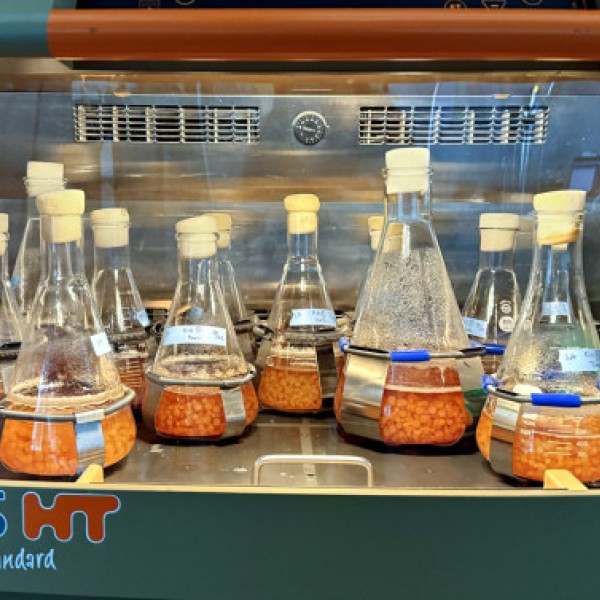Corrine Brown ’23 is a rising senior majoring in agricultural sciences, with an emphasis in business management and a minor in soil science. She transferred from SUNY Morrisville after her sophomore year to pursue her passion in agricultural sustainability. Brown is a member of the Cornell University Dairy Science Club and the brand-new Cornell Beef Cattle Club, and she’s a leader in Sigma Alpha, the professional agricultural sorority. She’s also part of the Dairy Sustainability Team’s Net-Zero Project, overseen by Quirine Ketterings, professor of nutrient management and director of the Nutrient Management Spear Program in the Department of Animal Science.
Here, Brown shares how she came to Cornell and what she’s learned while doing real-world research in dairy sustainability.
What brought you to Cornell?
I’m a first-generation bachelor’s student. My dad got an associate degree in animal husbandry and livestock production, and my mom joined the military and never went to college. It’s been harder figuring out the college process for myself, not having a legacy at Cornell or existing connections to draw from. SUNY Morrisville was a great place for me to start; it’s a really small community, which has its perks, but I always wanted to eventually transfer to Cornell. My advisor at Morrisville, Jennifer Gilbert-Jenkins, was really helpful with transfer applications, and she encouraged me to connect with Professor Ketterings, who is now my advisor at Cornell. There are so many more opportunities here and a diverse community of people from all over the world; it’s amazing. Being part of a community of professional women in agriculture, through Sigma Alpha, has especially helped me feel I belong here.
What have you learned in your work with the Dairy Sustainability Team?
The project is about helping dairy farmers be more sustainable and more profitable in their production. We use a variety of tools to measure the carbon footprint on dairy farms, with the goal of having dairy farming be net-zero by 2050. My piece of the project is comparing several tools that measure carbon footprint: Cool Farm Tool, Comet Farm, Fast GHG and Comet Planner. They estimate things like nitrous oxide, carbon dioxide, methane, and soil carbon sequestration, and give you estimates on how different management strategies – like conventional tillage vs. no till – would impact your carbon footprint. My job was to use and compare the tools as though I were a farmer who had no prior knowledge of these tools. The idea is to support strategies that reduce greenhouse gas emissions while also helping farmers. For example, if a farmer decides to practice no-till soil management, they can spend less on fuel and decrease carbon dioxide emissions, as compared to conventional tillage. Or, when quality crops are grown for cattle, it is not only beneficial for the soil and environment, but it is also going to create a more efficient feed and a happier cow that will produce more milk.
What are your future career plans?
There are so many opportunities in agriculture. I’m considering crop consulting, potentially with Cornell Cooperative Extension or a crop and nutrient management consulting firm like Western New York Crop Management Association (WNYCMA); I’m interning with WNYCMA this summer to gain more field experience in crop management and advising. I’m also considering graduate school. Whatever I end up deciding, I want to continue being an advocate for farmers. Ever since I did 4-H as a child and became a dairy princess as a teen, I’ve loved spreading knowledge about everything farmers do for the land, for the economy and for their animals.
Brown’s education at Cornell is supported in part by the Farm Credit East Scholarship, the Ontario County Casella Waste Management Scholarship, and the Carl E. Ladd Memorial Scholarship. The Ladd scholarship supports Cornell students who exemplify academic achievement, service and leadership in agriculture.






